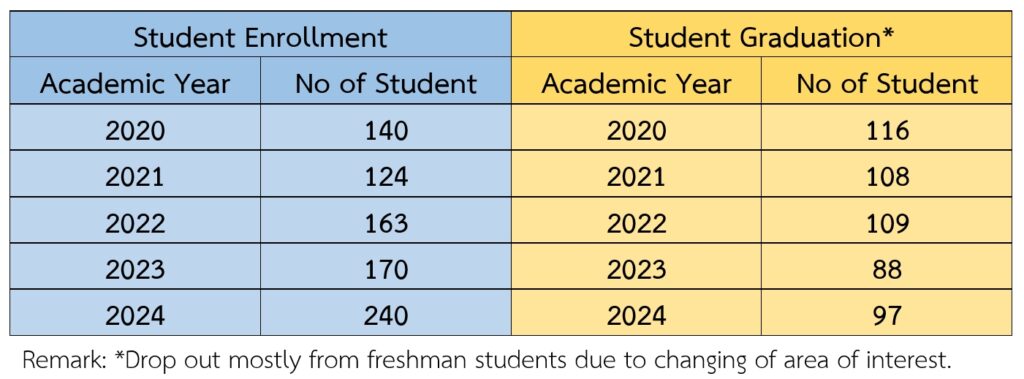
The Civil Engineering program at MUT is committed to developing graduates and new engineers who are well-prepared, guided by experienced faculty members who are recognized in both academic and professional fields. The program also offers large, modern, and fully equipped laboratories, ensuring that graduates possess both academic knowledge and practical skills to meet industry demands.
This also enables civil engineering students to pursue a variety of career paths in public sector, private sector, state enterprises, or even start their own businesses. Additionally, the program boasts one of the country’s largest networks of alumni, actively working in the industry and ready to support future graduates.
The objectives of our Civil Engineering program are to produce quality young engineering graduates, who are ready to meet the rapidly changing and evolving complex global challenges. Equipped with professional engineering skills, advanced knowledge and familiarizing with the state-of-the-art technology, our graduates play a crucial role in the development of Thailand and the ASEAN countries.
PEO1: Graduates practice their engineering profession proficiently and competently in various areas and aspects of Civil Engineering projects in Structural, Geotechnical, Transportation, Construction, and Water Resources using their systematic and creative thinking skills acquired from our educational program
PEO2: Graduates exhibit leadership in their professional practice, achieve successful career path towards professional licensure and develop lifelong learning skill through pursuing advanced studies or deviate to other career professions such as businesses and laws
PEO3: Graduates practice their engineering profession ethically and work cooperatively in multi-disciplinary and multi-cultural teams and environments with a strong commitment to social responsibility, public safety, and environment and cultural preservation.
Outcome-based education focuses on the skill sets which students have developed and acquired during the course of the study, in particular, emphasizing on the attributes that students need in order to function effectively on their professional practice. The faculty of Civil Engineering Department has deliberated over these requirements, while planning for our Program Education Objectives, for our students and arrived at the conclusion that the seven student outcomes, as required by ABET, are the minimum skill sets that our students must have.
SO1: An ability to identify, formulate, and solve complex engineering problems by applying principles of engineering, science, and mathematics.
SO2: An ability to apply engineering design to produce solutions that meet specified needs with consideration of public health, safety, and welfare, as well as global, cultural, social, environmental, and economic factors.
SO3: An ability to communicate effectively with a range of audiences
SO4: An ability to recognize ethical and professional responsibilities in engineering situations and make informed judgments, which must consider the impact of engineering solutions in global, economic, environmental, and societal contexts
SO5: An ability to function effectively on a team whose members together provide leadership, create a collaborative environment, establish goals, plan tasks, and meet objectives.
SO6: An ability to develop and conduct appropriate experimentation, analyze and interpret data, and use engineering judgment to draw conclusions
SO7: An ability to acquire and apply new knowledge as needed, using appropriate learning strategies
